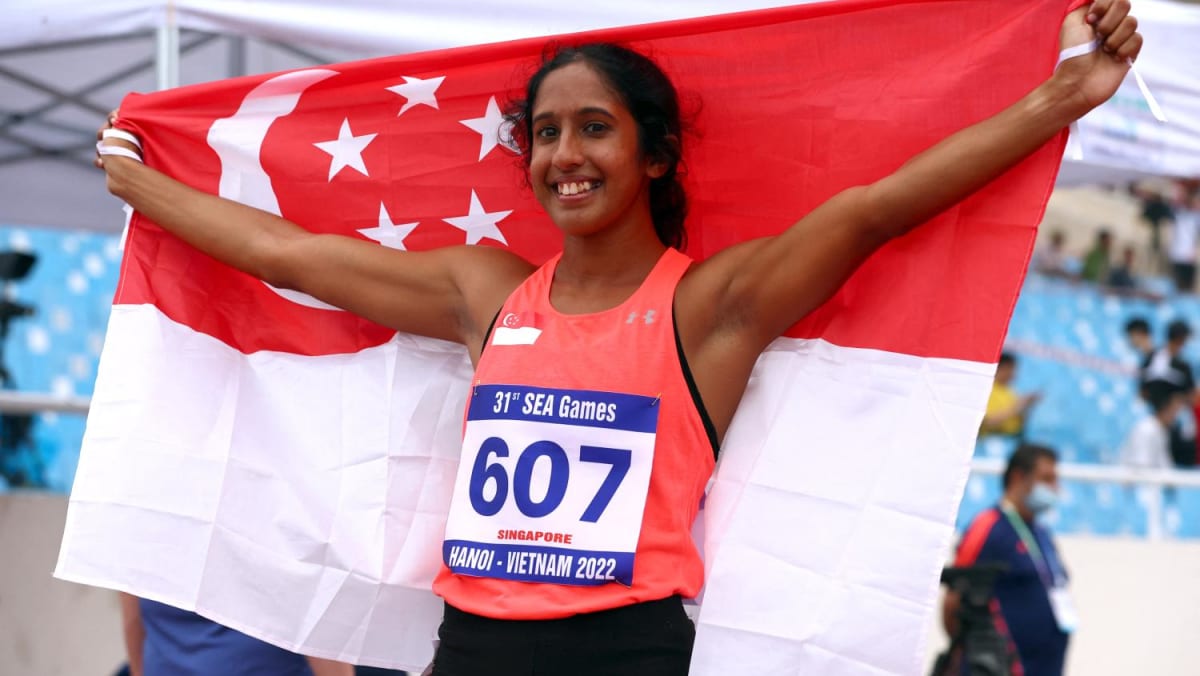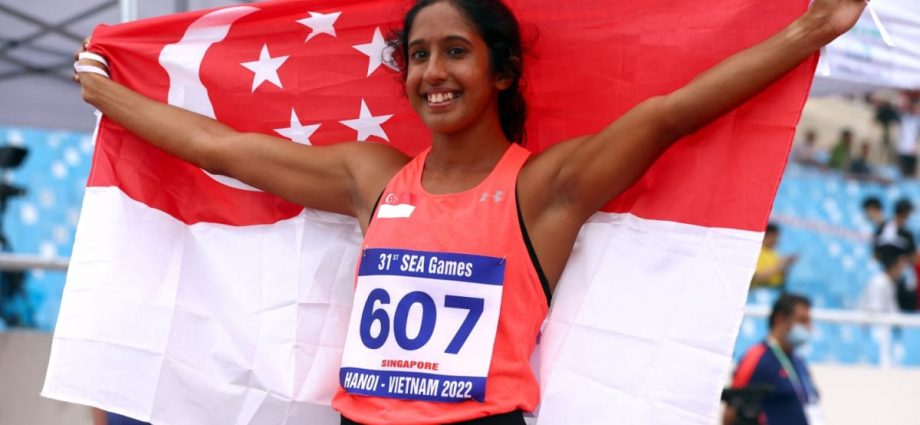
What has been impressive is Pereira’s consistency, said Lim-Prasad.
“That not just speaks of physical fitness, but the fact that her mental strength is strong enough, and she has experience to manage that excitement, and maybe even nerves.
“Regardless of the wind conditions, headwind, tailwind, no matter what – she’s been great.”
Former Singapore sprinter Glory Barnabas described Pereira’s performances as “amazing” and inspirational to the next generation of sprinters.
“It’s good for Singapore athletics, because this is creating an interest among other sprinters,” said Barnabas, who was the only local athlete to win gold in the 200m at the SEA Games (1973) until Pereira’s 2015 win.
“They would be looking up to her as a champion, and maybe trying their best to watch her training or if they happen to know her personally to get some answers from her … and that will be very good for them.”
IDEAL CONDITIONS
Last November, it was announced that Pereira would join the Sports Excellence Scholarship programme, which supports athletes headed to major competitions.
And being able to train full-time has no doubt benefited her, say those who CNA spoke to.
Focusing on training, recovery and performance allows an athlete to be more intentional in their preparation, rather than be beholden to work schedules, said Lim-Prasad.
“If you’re always exhausted, your body is not going to be able to adapt from the training or even be ready enough to put in the intensity needed. And then that might lead to an injury or very simply a workout which is not a good quality one. (It is eliminating) all of that plus removing the ample load of having to worry about other work,” she explained.
All of these small things make a “huge difference”, said the women’s 400m and 400m hurdles record holder. “It’s a ripple effect, it gives her more capacity to then pour into track.”
Speaking to CNA, Pereira said it was tough to juggle work and training in the past.
“I did have the time to train but (the) quality wasn’t there because I’m just tired from working the whole day, and then showing up to training after that,” she said.
“It could also get a bit hectic. Sometimes you’re not sure what time you will finish (work), and then you show up at the track way later than you wanted to – you’re just not physically or mentally ready for the session which is not ideal because you want to be at your best every day.”
Her coach Luis Cunha also stressed the importance of being an athlete 24/7.
“All the decisions that you take during the entire day need to be (about being) an athlete. The things that you eat, the times that you eat and drink, the recovery … and the number one recovery is sleep. You need to have a routine in terms of sleep that allows you to recover,” he told CNA.
Not having to work has allowed Shanti to focus more on these, he said.
“Now (the goal is for her) to continue on that pathway. It is not going to be easy, because this pathway demands from her to be very discipline and do things that are not easy.”
Pereira’s performances in 2023 have built on a strong 2022 where she registered national records in both the 100m and 200m, winning a gold (200m) and silver (100m) at the SEA Games.
“She’s had such a successful season at SEA Games, even while juggling work,” said Lim-Prasad.
“That really speaks volumes about the training that she’s been putting in, and her as an athlete and her talent. But I think just being able to rest and just fully focus just accelerated her trajectory or gave her a bit more breathing room.”

